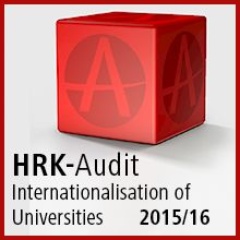Internationally engaged and interconnected
The University of Stuttgart's strategic goal expressed in the slogan “internationally engaged and networked” describes undertakings with a global perspective.
Because an international orientation encourages diverse intellectual approaches, it attracts students and scientists from around the world. The University’s international atmosphere, the way it organizes studies, and the focused way it promotes international projects ensure that our graduates are equipped to meet their responsibilities in various contexts, both here at home and abroad.
Since July 2025, the university has been presenting these and many other aspects of internationalization in a single document, the Internationalization Strategy.
Selection of partners and cooperations
- Georgia Institute of Technology (Georgia Tech), Atlanta, USA
- Massachusetts Institute of Technology (MIT), Cambridge bei Boston, USA
- Pontificia Universidad Catholica de Chile, Santiago de Chile, Chile
- Università degli Studi di Bergamo, Italien
- NUS – National University of Singapore, Singapur
- Hanyang University, Seoul, Südkorea
- University of Melbourne, Australien
- University of Adelaide, Adelaide, Australien
Cooperations around the globe
The University of Stuttgart cooperates with foreign universities in both research and teaching. This can mean participation in research alliances, exchange programs or dual-degree study programs. The world map shown here pinpoints partner universities and selected cooperations. For more detail, see the definition list segmented by region, each designated by capital letters on the map.
- A: North America
-
17 direct partnerships, 6 state-to-state exchange programs totaling more than 60 universities
- B: Latin America
-
28 cooperations
- C: Europe
-
ca. 280 relationships in 32 countries
- D: Africa
-
4 cooperations
- E: Asia
-
35 cooperations
- F: Oceania
-
9 cooperations

The strategic focus of international activities began in 2011, and was continued in the university’s overall strategy development from 2013 to 2018 as well as by internationalizing the HRK audit process in 2017. Representatives from all faculties, the central units, the administration as well as students have been in dialog with one another about the internationalization strategy since 2018 as part of the Steering Committee Internationalization, and are implementing this strategy together.
Contact

Alexander Brem
Prof. Dr.Vice Rector for Science Transfer and International Affairs

Marion Höcke
Head of Division
- Profile page
- +49 711 685 68550
- Write e-mail
- Office hours: Mon - Fri 10 am to 12 pm, Mon and Fri 1:30 pm to 4 pm



